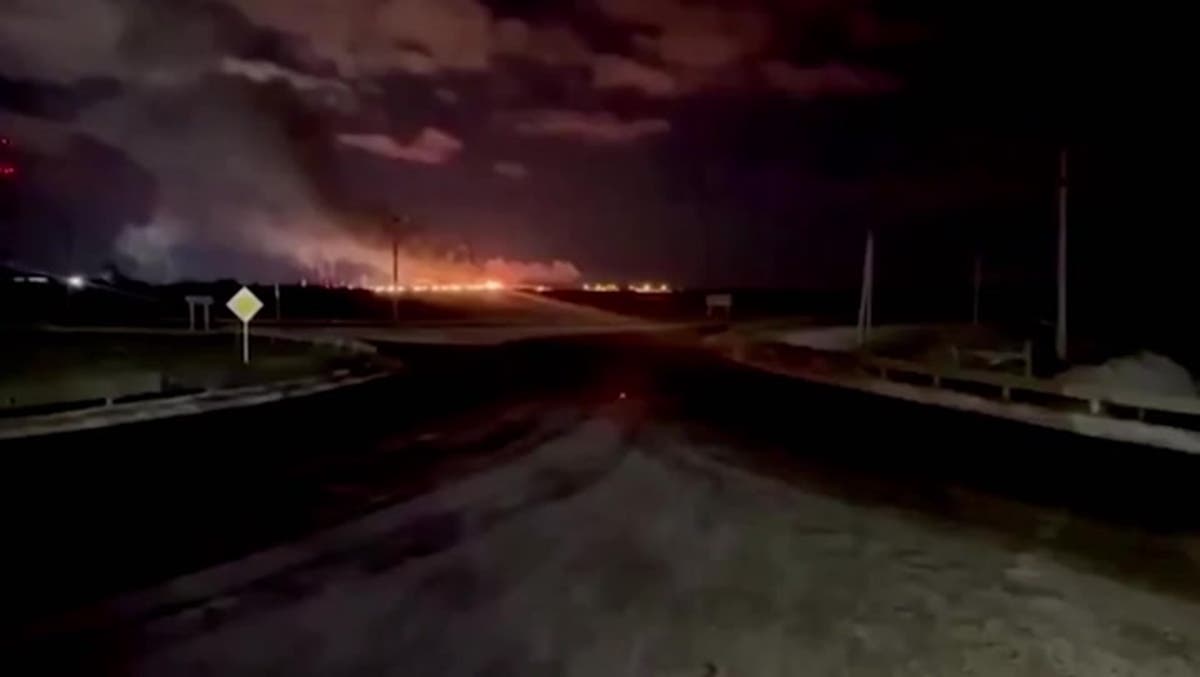The United States and United Kingdom unveiled what they say are the harshest sanctions targeted at Russia’s energy sector since Moscow’s troops began a nearly three-year-old war on Ukraine in early 2022.
The sanctions will cover two major Russian petroleum producers and exporters — Gazprom Neft and Surgutneftegas — both of which are involved in the export of liquified natural gas and efforts to expand the Russian energy sector into the Arctic. They are expected to cut off Moscow’s revenue stream to the tune of billions of dollars per month, putting new strain on Russian President Vladimir Putin’s war effort against Ukraine.
Separately, the State Department will also block “two active liquefied natural gas projects, a large Russian oil project, and third-country entities supporting Russia’s energy exports” from access to the American financial system and add “numerous Russia-based oilfield service providers and senior officials of State Atomic Energy Corporation Rosatom” to its list of “designated entities” who are banned from the United States.
Treasury Secretary Janet Yellen said in a statement that the U.S. is “taking sweeping action against Russia’s key source of revenue for funding its brutal and illegal war against Ukraine.”

“This action builds on, and strengthens, our focus since the beginning of the war on disrupting the Kremlin’s energy revenues, including through the G7+ price cap launched in 2022. With today’s actions, we are ratcheting up the sanctions risk associated with Russia’s oil trade, including shipping and financial facilitation in support of Russia’s oil exports,” she said.
A senior Biden administration official who briefed reporters on the move said the White House was choosing to impose the new sanctions just days before President Joe Biden leaves office because both oil markets and the American economy are “in a fundamentally better place” than they were at any other point during the war.
“During much of this war, global supplies were tight and at risk of falling short of demand, which meant that reducing Russia’s oil exports to the world would likely push up Putin’s export revenues while raising prices at the gas pump for families in the United States and across the world,” the official said.
“Now, forecasters expect the global supply of energy to exceed global demand with ample capacity within and outside of OPEC, plus to increase production if necessary.”
The official noted that benchmark oil prices have dropped by $35 per barrel since the start of the war, with the average price for gasoline in the United States falling from $4 to just over $3 today. They credited Biden administration efforts to combat inflation for providing new flexibility to target Russian energy without harming the American economy.
“The context changed, and so the moment was ripe to change our strategy, and the President took action,” the official said.
A second administration official who also briefed reporters on condition of anonymity said the new sanctions will target 183 maritime vessels that are understood to be part of Moscow’s “shadow fleet,” as well as “dozens” of oil traders and oil field services providers based in Russia.
“Since the beginning of this conflict, the Biden administration, our partners in the g7 have taken significant action to reduce Russia’s revenues from energy exports, including through the g7 price cap put in place in 2022 Russia’s oil tax revenues in 2023 and 2024 were significantly lower than in 2022 before the price cap was implemented. This is the right time for these actions,” the official said.

